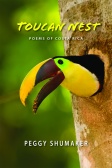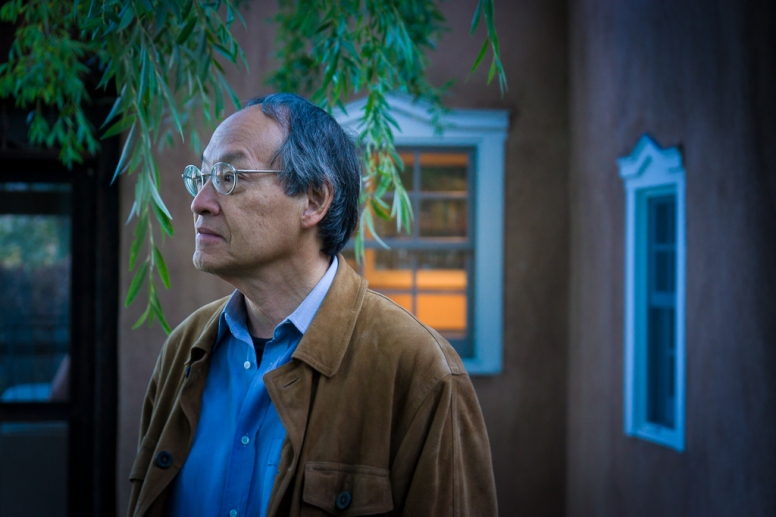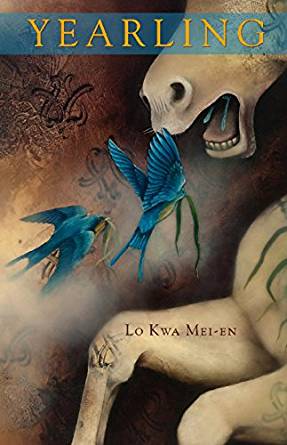Peggy Shumaker’s Toucan Nest: Poems of Costa Rica
 These poems need to be read aloud. Jane Hirshfield, in a cover blurb, calls Toucan Nest, “a book of burnished, lapidary attention.” And it is. Each bird and bat is polished like a gem. The poems are dense with bright nouns, and repeated sounds. The lines in almost all of the poems are short, and short stanzas, too, leave white space as if the are images leap from the environs like birds from foliage. People crop up, too, guiding, pointing, speaking. I kept stopping to look up names and words (Gallo Pinto, bromeliad, trogon). If a poet’s job is to pay close attention (and it is), Peggy Shumaker here fulfills that role beautifully.
These poems need to be read aloud. Jane Hirshfield, in a cover blurb, calls Toucan Nest, “a book of burnished, lapidary attention.” And it is. Each bird and bat is polished like a gem. The poems are dense with bright nouns, and repeated sounds. The lines in almost all of the poems are short, and short stanzas, too, leave white space as if the are images leap from the environs like birds from foliage. People crop up, too, guiding, pointing, speaking. I kept stopping to look up names and words (Gallo Pinto, bromeliad, trogon). If a poet’s job is to pay close attention (and it is), Peggy Shumaker here fulfills that role beautifully.
Here is one of the poems that I marked to reread:
Rain at Trogon Lodge
–Talamanca Mountain Highlands
Pura vida come purer,
bromeliads replenish
tiny lakes encrusted to their
calderas. Calla lilies
stiffen, sway.
Darting hummers, purple-
throated, green-winged,
whir feeder to fuchsia,
rafter to fig.
Drenched, the world
shimmers — pearls
suspend
along dark
soffits. Elastic
drops
shape-shift —
puddle, fishpond,
cloud breath.
Iguana’s drink, our
moist souls’ scrim.
Peggy Shumaker, Toucan Nest: Poems of Costa Rica (Red Hen Press, 2013)




 Sobek (also called Sebek, Sochet, Sobk, and Sobki), in Greek, Suchos (Σοῦχος) and from Latin Suchus, was an ancient Egyptian deity with a complex and fluid nature. He is associated with the Nile crocodile or the West African crocodile and is either represented in its form or as a human with a crocodile head.
Sobek (also called Sebek, Sochet, Sobk, and Sobki), in Greek, Suchos (Σοῦχος) and from Latin Suchus, was an ancient Egyptian deity with a complex and fluid nature. He is associated with the Nile crocodile or the West African crocodile and is either represented in its form or as a human with a crocodile head.


 Although I sometimes felt baffled by
Although I sometimes felt baffled by